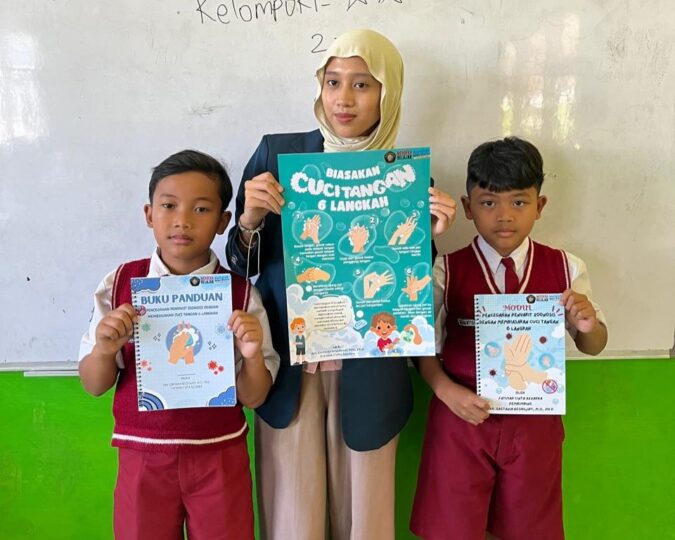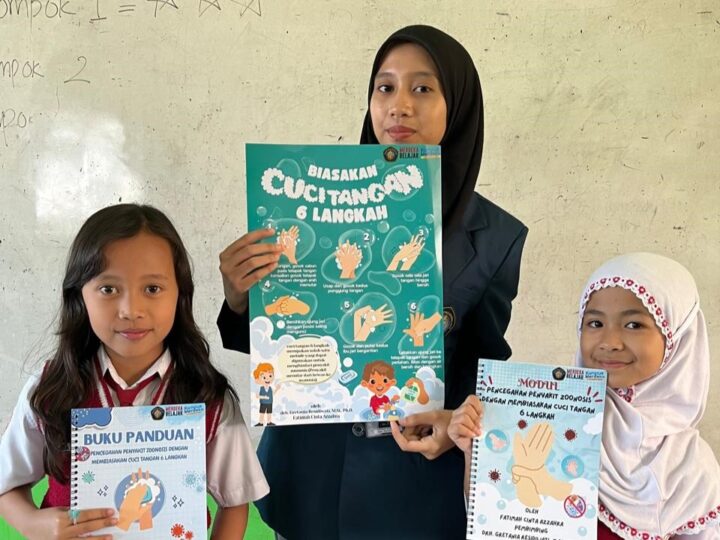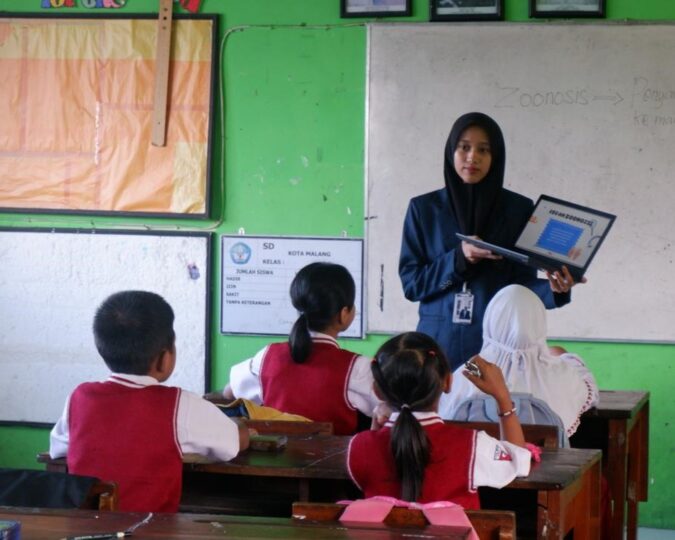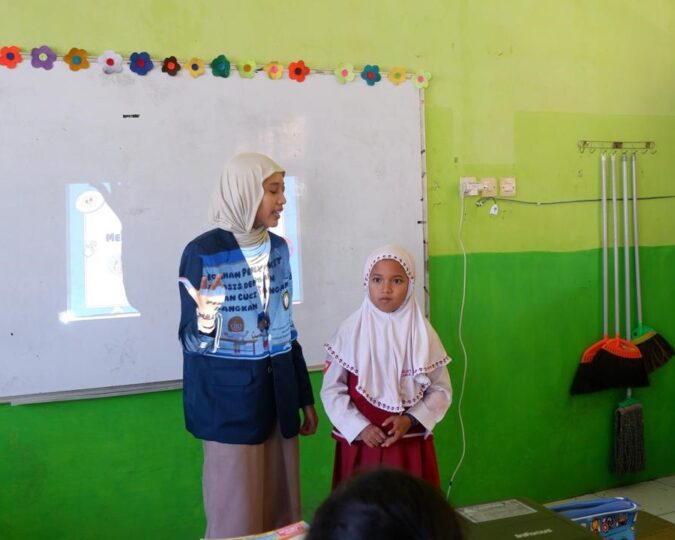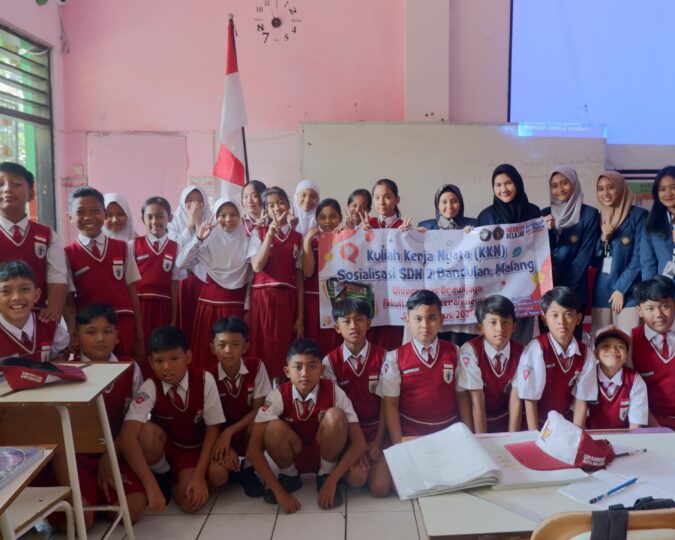The Community Service Programme (Kuliah Kerja Nyata, or KKN) is one of the forms of community engagement routinely conducted by Universitas Brawijaya each year. This year, students from the Faculty of Veterinary Medicine (FKH) carried out their KKN at Elementary School Bandulan 2, Kelurahan Bandulan, Sukun District, Malang City, from 22 July to 7 August 2024. The programme was supervised by Dr Gretania Residiwati, M.Si., Ph.D., with a team of five members: Fatimah Cinta Azzahra, Danthina Ravindra, Alfia Ayu Arofadila, Nhasya Dyo Shafira Chaniago, and Salsabilla Marva Yanita Putri.

The lack of understanding about zoonotic diseases and their prevention among students at Elementary School Bandulan 2 poses a potential risk to environmental health. Pretest results indicated that students’ knowledge of zoonotic diseases was still limited. Therefore, this KKN initiative aimed to enhance students’ understanding of the importance of preventing zoonotic diseases and to promote proper handwashing practices.
The education was delivered to Year 3 students of Elementary School Bandulan 2 using PowerPoint presentations, modules, posters, and flyers. The interactive learning approach, including the use of engaging songs, helped students retain the information presented. The educational activities were well-conducted using language that was easy for students to understand. Post-test results showed an improvement in students’ understanding, indicating that the material was effectively received.
Early education about zoonotic diseases and correct handwashing practices can help students adopt healthy daily habits. By instilling a thorough understanding of the importance of washing hands after interacting with animals or contaminated environments, students are expected to protect themselves and their families from zoonotic diseases. This health education programme at the primary school level is hoped to foster good habits that endure into adulthood and contribute to overall public health improvement.
